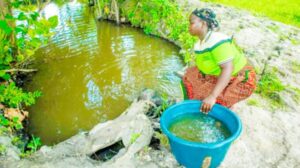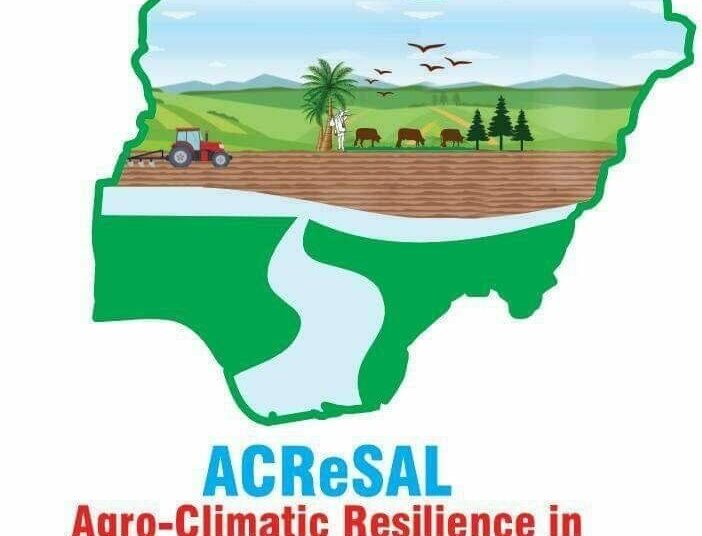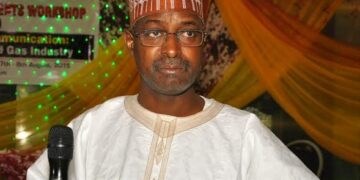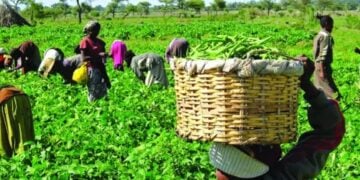Nasarawa State Agro-Climatic Resilience in Semi-Arid Landscapes (ACReSAL) project has constructed 17 solar-powered boreholes in 17 rural communities in Akwanga local government area of the state.
The project also provided solar-powered streetlights in 408 in 83 communities across the local government area.
The state project coordinator, Dr. Napoleon Gyobe Elias, who disclosed this to journalists in Lafia, said the boreholes and streetlights were put in place between March and May 2023.
According to him, the State Project Management Unit (SPMU) worked with traditional leaders, local government officials and community members to provide the facilities following a detailed needs assessment in the communities in 2022.
He said the solar-powered boreholes had ended the incessant conflicts between herders and farmers in the communities where livestock and humans share the same stream, especially during the dry season.
“Accusations that the livestock was contaminating the community’s sole source of water exacerbated the conflict, leading to the herders removing their children from school.
“Without access to basic infrastructure for clean water, the 22 communities in Akwanga LGA had to walk three to four kilometers to collect water for domestic use, agriculture and livestock. The long daily treks for water meant that children lost school hours.
“Drinking water contaminated by animal waste, many suffered from waterborne ailments such as intestinal parasites, typhoid and cholera.

Along with poor sanitation and insect bites, water quality problems resulted in a large number of hospital visits and even deaths, especially among children. Lack of electricity left the community vulnerable to animal attacks, snakebites and even robberies at night,” he said.
He said the 13,000 residents who gained access to clean and safe drinking water through the initiative had not only experienced better health but also improved livelihoods, adding that cases of cholera and gastrointestinal disorders and visits to health facilities had greatly reduced while school attendance also improved.
“Animal health has also improved. Where a Fulani cattle owner would spend around N3m ($1,800) on veterinary care to treat ailments contracted from drinking contaminated water from the streams, they spent around N600,000 ($360) after the intervention, saving around N2.4m ($1,100). The improved health of cattle has raised their selling price-a two-year old cow that fetched N100,000 to N150,000 ($60-90) earlier now sells at N300,000 to N350,000 ($180- $210) because they grow healthy and fat,” he added.
He said provision of clean water had also increased economic activities across the benefiting communities.
“In Ungwan Makama, a community of more than 80 households, almost every household now produces fried cassava (garri). According to Madam Rakiya Adamu, who has been making garri for over 20 years, she used to make one bag of 50 measures per day because of the distance to the stream from her house, but now makes eight bags of 50 measures per day. Selling at N100 per measure, she has seen her profit increase eight-fold from N5,000 to N40,000 per day – above the national poverty line of N30,000 per day in rural Nigeria. She also said people come from Plateau, Kano and Bauchi states on market days and buy all her cassava, and ask for more because it is cleaner and tastier now.
“The Fulani women in the Ardo Ibrahim community are also now able to sell their milk products (nono) for higher prices, and have also expanded into producing other popular drinks such as Zobo and Kunu. Their daily profits have increased by N1,000 per person, helping them to be more self-reliant,” he stated.
He said the most impactful benefit of the water project was perhaps the reduced tension between herders and farmers over drinking water, explaining that local leaders reported that 2024 was a conflict-free year, marking significant progress in fostering peace and stability in the area. As a result, herders have also reduced their earlier practice of taking their cattle through farms to the drinking water stream, all from providing clean drinking water.
He averred that the process leading to the execution of the projects was transparent and in conformity with international practices even as he added that community engagement had ensured that long-standing issues of water scarcity, health crises, and farmer-herder conflicts were executed efficiently and sustainably.
“Active community participation from start to finish, was a key factor in fostered a strong sense of ownership, with residents taking pride in protecting and maintaining the infrastructure. Water management committees have been established to ensure the long-term sustainability of the initiative in all 17 communities provided with solar-powered boreholes. These committees, which include trained community members, charge a small fee from residents and deposit it in a communal fund to carry out their responsibility of maintenance and repairs of the boreholes.
“The intervention offers a scalable solution to similar challenges across the state and beyond, and the Nasarawa SPMU of ACReSAL plans to replicate this intervention in the remaining 12 local government areas of the State – and indeed for other ACReSAL states and the whole of Nigeria,” he said.




